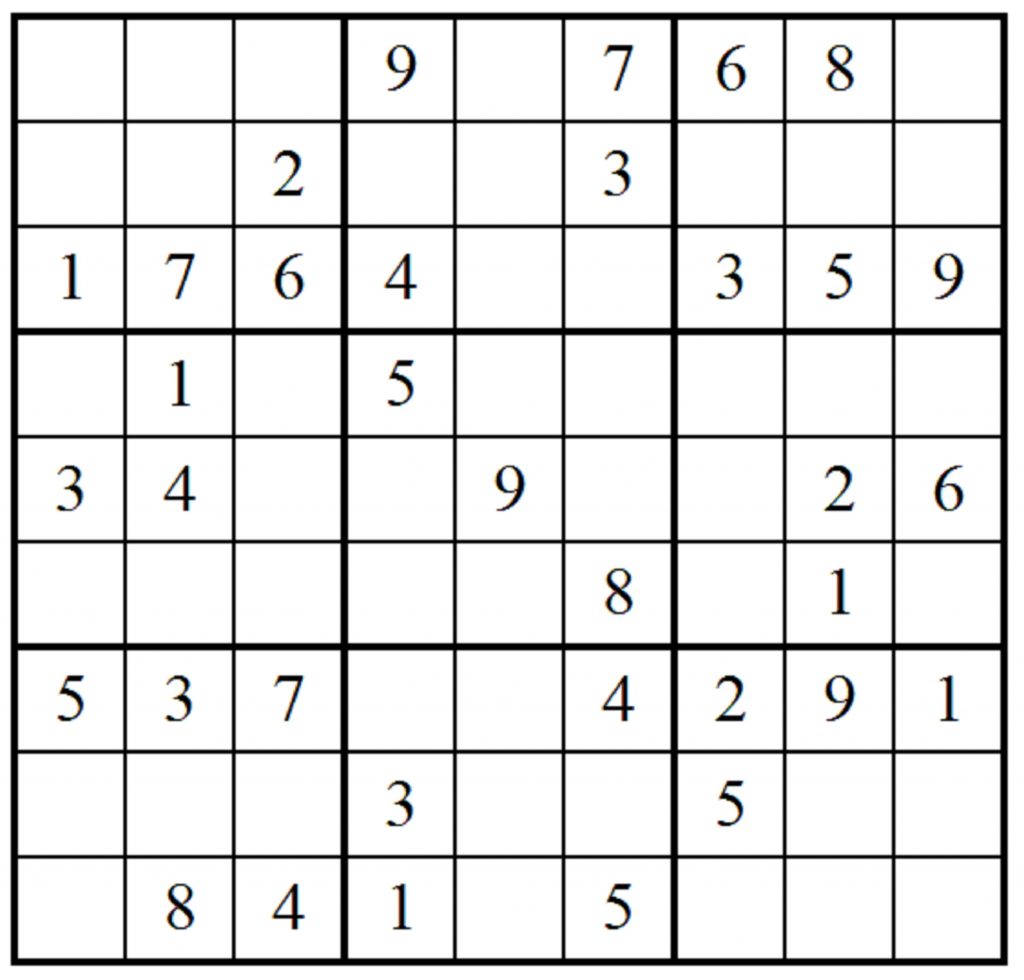The benefits of Sudoku and crosswords have been proven! Regular puzzle solving rejuvenates the brain by 10 years
Seniors who regularly solve web Sudoku puzzles have sharper minds and better brain capabilities, according to the largest online study to date. The more often they force their brain to work on crosswords and Sudoku, the better it functions.
Online Testing
The study, conducted by the University of Exeter and King's College London, involved 19,000 people. Scientists previously presented their findings on the benefits of word puzzles at a conference in 2018. The new PROTECT study builds on these discoveries, complemented by one more: and the number riddles have the same effect on the brain.
Scientists asked participants online how often they solved crosswords and Sudoku online, and then asked them to take a series of cognitive tests to test their brain function. It turned out that those people who regularly solve puzzles showed the best results on tasks for attention, thinking and memory.
Significance of results
The researchers calculated that the brains of such people are, on average, ten years younger than their passport age when it comes to grammatical thinking, and eight years younger in short-term memory tests.
Dr. Ann Corbett of the University of Exeter who conducted the study notes:
“We found that the more regularly people solve puzzles like crosswords and Sudoku, the better they get on tests of memory, attention and thinking. Improvements in the accuracy and speed of their solutions are especially noticeable. In some cases, the changes were very remarkable: in solving problems, people showed results that are usually found in people an average of eight years younger. We cannot argue that puzzle solving uniquely reduces the risk of developing dementia later in life, but this study confirms that regular verbal and number puzzle solving helps the brain perform longer and better. "

So far, the study has already involved 22,000 people, and this number continues to increase, spreading to other countries, including Hong Kong and the United States. The online platform allows examiners to conduct large-scale research without the need for participants to visit a laboratory.
What the experts are working on?
PROTECT is a 25-year study that examines participants' aging brains and the risks of developing dementia every year. In addition to participating in surveys and tests, respondents have access to special programs that train brain functions, and can also take part in new research to maintain brain health and prevent senile dementia.
Clive Bollard, a professor at the University of Exeter, says: “PROTECT is one of the most exciting research initiatives of this decade. The research allows us to better understand the aging process of the brain and to carry out new developments that are helping to search for opportunities to reduce the risks of dementia. If you're 50 or older, you too can participate in research to help you maintain your brain health as you age. "
Related Resources:
Are puzzles useful?
The benefits of puzzles
What are the benefits of logic games?

